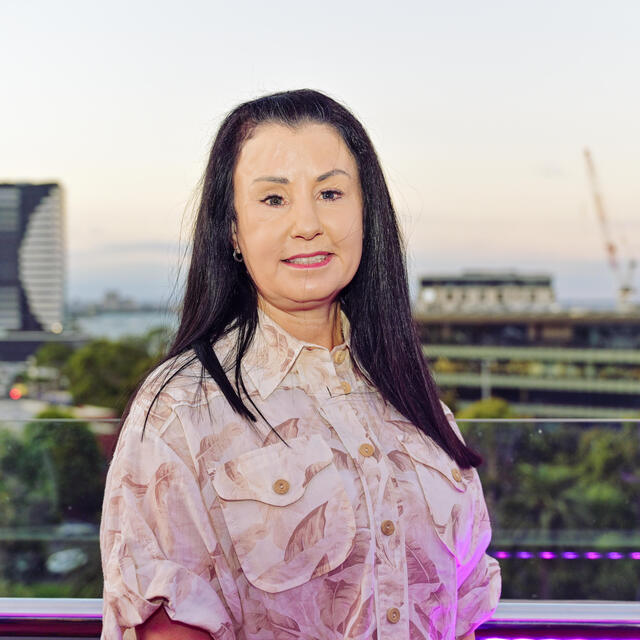The community has gathered to honour and hear stories of women and children killed or harmed by family violence at a Geelong Candlelight Vigil Forum.
An expert panel of specialist speakers highlighted how everyone can work together and support those impacted by violence in the workplace and community on Wednesday, May 1.
Guest speaker and domestic violence survivor Simone O’Brien said she experienced domestic violence after ending a nine-month relationship one morning in 2012.
“He was deleting contacts on my phone, it happened four to six times and I was blaming my son for it, but I worked out that it was actually the perpetrator that was doing it,” she said.
“The real reason I wanted to end the relationship was that he started sending me flowers to work, not just one, but every day, every couple of weeks; it just made me feel sick.
“At that time, I was actually in a government job, so he couldn’t get into the building, but he knew he could send flowers in, so when he started doing that, that’s when I ended the relationship.”
What started with emotional and psychological abuse, such as telling lies, stealing money and insults, led to Ms O’Brien losing her sense of smell and eyesight in her right eye.
“In 10 minutes, my life has changed forever, as he beat me with a baseball bat 45 to 50 times in the face, and I was within inches of my life. They weren’t expecting me to live,” she said.
“I’ve had 52 operations with two more to go, but I’m a prisoner in my own body for the rest of my life with my children, and I left mentally affected.
“The perpetrator told me he had never been married but after the hearing, which was two and a half years after the assault, his face went around Australia and two wives actually come forward.”
Ms O’Brien said she wanted everyone to start talking about red flags and how to spot them for the benefit of future generations.
“Little red flags turn into big red flags really quickly. In other words, don’t brush off any little red flags because it will become a big red flag,” she said.
“My message is that we need to report, report and report because I shouldn’t be here talking about this…and that it’s not embarrassing to speak up about domestic violence because you’re not alone.
“Men need to start picking up men when they’re wrong and help young boys bring respect back into relationships, letting them know that women are not there just to be told what to do all the time.”
Meli chief executive Grant Boyd said the forum came at a time when the community was grappling with recent tragic acts of violence against women.
“We know that family violence affects people from all walks of life and includes many forms of abuse and violence that is not always physical,” he said.
“Between 55 per cent and 70 per cent of women who have experienced violence, or are experiencing violence, are currently in the workforce.”
The Sexual Assault and Family Violence Centre chief executive Helen Bolton said everyone deserved “safety and respect” and that “victims have a right to be heard and believed”.
“For all survivors of family violence, and women of our community the past few weeks have brought up strong emotions,” she said.
“We require a national conversation on violence against women – on how women have a right to respect, gender equality and safety at home, in our workplaces and in the community.”
If this article has raised any concerns, call 1800Respect on 1800 737 732, Safe Steps on 1800 015 188, or Orange Door on 1800 312 820.









